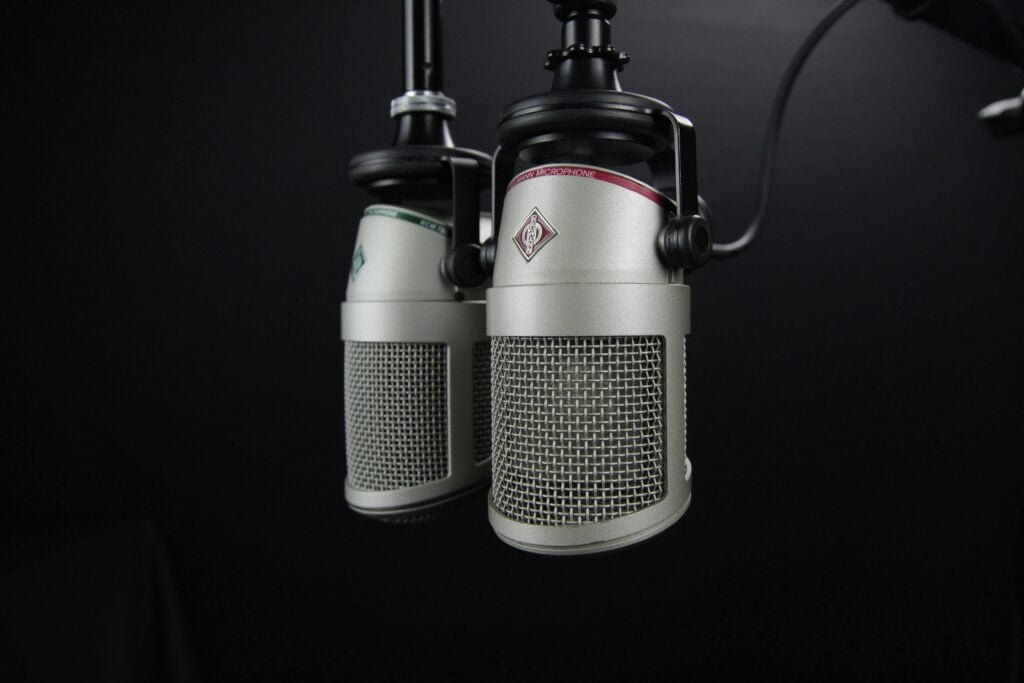Podcasting……..In today’s world, almost everyone listens to podcasts. According to this Statista article, about 79% of the American population has at one point listened to a podcast. A quarter of this percentage are constant listeners with favorite podcasts they tune into weekly. Interestingly, podcasting is also well utilized in other parts of the world, including Asia and Europe, with South Korea, Spain, and Sweden tipped to have the most podcast listeners in the world.

In fact, Spotify, one of the biggest podcasting platforms as at March, 2024, has more than five million shows available for both online and offline listening.

With all these statistics, it’s obvious that podcasting is a major deal in today’s world. It is among the major forms of digital content creation today. However, despite how big a deal podcasting is, some people have limited to zero knowledge about how it works. If you fall under this category, then you are right where you need to be.
In this article, we will help you catch up with every important thing concerning this digital content creation form. Here, we explain what it is, its increasing popularity, how it’s different from other content forms, and so much more. With that said, let’s jump right into it!
What is Podcasting?
Podcasting is a form of digital content creation that involves creating and distributing audio files to listeners. The audio file created is known as a podcast and it can be streamed online or downloaded and listened to offline.
Content creators typically distribute their podcasts on streaming platforms like Apple Podcasts, Spotify, and many others. Once the audio is published on the streaming platform, listeners can use their smartphones or PCs to listen to them.
Podcasts are typically audio content. However, some creators film their episodes and then post the full episodes or snippets on their social media platforms. This is why you may hear of a “video podcast”.
Most podcasts are based on a particular theme or topic, with individual episodes being about an aspect of the general theme/topic. For instance, a podcast may be about true crimes, lifestyle, or entertainment, to mention a few. With the rising popularity of podcasting, it’s relatively easy to find a podcast in almost any niche you can imagine.
History of Podcasting
The history of podcasting goes way back to the early 1980s when it was known as audio blogging. However, its rise as a popular digital content creation form dates back to 2004. This is all thanks to Adam Curry and Dave Winer, who created iPodder, which allows listeners to download their favorite radio shows from the internet to their iPods. This is why this media form is called “podcast”, a combination of “iPod” and “broadcast”.
Podcasting as a digital content creation form has since then experienced several evolutions and growth. With various technological advancements and the wide availability of top-notch podcast equipment, starting up a podcast is among the easiest things to do in today’s world.
How is Podcasting Different From Other Forms of Content Creation?
The world today is content! Whether it is written, audio, or video content, the average individual today rarely goes through a day without consuming a form of content.
There are various forms of content creation. The three most popular ones are:
- Blogs
- Vlogs
- Podcasts
Here, we will compare blogs and vlogs to podcasts to help you understand the differences between them.
Podcast vs Blog
Blogs, unlike podcasts, are written and posted on websites rather than streaming platforms. They consist of entries, posts, and articles that you’d find displayed on websites. Every aspect of blogs is visual; therefore, apart from texts, they may contain other features like images, videos, and infographics.
The following are the key differences between blogs and podcasts:
- Podcasts are in audio format, and blogs are written
- Podcasts are listened to, and blogs involve reading
- Blogs are relatively searchable and accessible, podcasts are not as searchable as blogs but offer convenience and allow listeners to multitask
- Audience interaction is easier with blogs, as readers can easily and immediately leave comments after reading the post.
- A podcast creator needs recording and audio editing skills, whereas, a blog writer needs SEO and writing skills
Podcast vs Vlog
A vlog, otherwise called a video blog, is a type of blog that involves the primary use of video content. You would often find vlogs on video streaming apps and sites like YouTube. The content of a vlog can be anything from a skit to personal diaries, reviews, tutorials, and so much more.
The primary difference between vlogs and podcasts is the delivery medium. While vlogs are visual, podcasts are audio. However, some podcasters may have video podcasts, and these may blur the lines between vlogs and podcasts. A major way to tell video podcasts apart from vlogs is the content of the video.
The table below summarizes the differences between these various forms of digital content creation:
| Feature | Podcast | Vlog | Blog |
| Medium | Audio | Video | Text |
| Engagement | Listening | Watching | Reading |
| Content | Audio episodes consisting of discussions, storytelling, or interviews | Video content – typically meant to connect with viewers on a personal level | Entries, written posts, and articles |
| Creation Skills | Recording, audio editing, and orature | On-screen personality, video editing, and recording skills | SEO and writing skills. Web design skill is a plus |
| Accessibility | Convenient, allows listeners to multitask | Visually appealing | Searchable, easily referenced |
| Platform | Podcast streaming platforms | Social media, YouTube | Blogs, websites |
Why is it Gaining Momentum; Most Podcast Release Region
Podcasting is not a new concept, as it’s been around for years. However, its popularity has skyrocketed in recent times, making it one of the most commonly used forms of digital content creation. This has made a lot of people wonder why podcasting is gaining this much momentum.
With how visual-based our world today is, it’s a bit surprising that an audio-based form of content is this popular. So, why and how are podcasts competing against other visual content like vlogs in today’s world?
Below, we provide a few points we believe make this possible:
- It makes it easier for listeners to multitask: A primary reason podcasting is gaining so much popularity is that it offers convenience for multitasking. Because listeners do not have to actively look at their screens when listening to their favorite shows, they can easily engage in other activities.
A lot of people listen to a podcast when doing something else, like working out, walking, driving, cooking, baking, and so on.
- It offers listeners premium entertainment: Not only do podcasts offer flexibility to fit into our very busy lives, but they are also very interesting. It does not matter what your preferred topic or niche is; you will likely find a podcast that fits it to a T.
This is a major contributing factor to the rise of this digital content creation form. A lot of people these days want to be entertained while doing other important things in their lives.
- Serves as a sort of news outlet for users: A lot of news outlets, such as The New York Times, The Guardian, and The Washington Post, now have podcasts where they give out daily news and updates. A lot of people use these to stay abreast of current happenings and events.
The Daily – The New York Times podcast has over 2 million listeners every day. This figure, although impressive, is not quite surprising, as news happens to be the second most common podcast topic after comedy.
- Comes in various styles: Aside from the fact that podcasts cover a wide variety of topics and themes, they also come in various styles. From storytelling to interviews, conversations, discussions, and so much more. So, it doesn’t matter what style the listener prefers; they will likely find a style that fits their taste.
- Creating/Producing a podcast is relatively easy: Another reason podcasting is now so widespread is that there are a lot of creators on the scene. Anyone with the right amount of motivation and creativity can create a podcast. All they need is good equipment, and they can set up a studio and create from the comfort of their homes.
- Build community: Podcasts build communities that become beneficial to both listeners and creators. Listeners tend to follow their favorite podcasters on social media and engage with them while waiting for the release of new episodes. Podcasters can then use these engagements to sell products, promote brands, and events.
Benefits of Podcasting
Podcasting as a digital content creation form offers several benefits to podcasters. Some of these benefits include:
- Global Audience: Podcasts are published on the internet through streaming platforms. Most of these platforms are available globally. This means that a podcast has the potential to reach anyone, anywhere in the world. This gives podcasters a limitless opportunity for global growth.
- Creative Expression: Being a podcaster gives you the chance to creatively express yourself to a listening audience. You can share your ideas, mission, and vision with your audience and even build a brand with this.
- Community Building and Engagement: Podcasting can help you build a loyal fanbase that will engage with your content even outside the podcasting
- Monetization Chance: There are various ways to make money as a podcaster. But a primary way would be to monetize your show. You can do this through sponsorships and affiliate marketing. With a bigger audience, you would be able to make more money off your show.
5 Top Podcasters
There are so many creators in the podcasting scene, but some are so popular, with several million people listening to their shows. Below, we discuss five top popular podcasters and their shows.
- Joe Rogan: Joe Rogan is the host and owner of The Joe Rogan Experience, which he launched in 2009. Since its launch, this podcast has grown to always have a spot on any list of popular podcasts. The Joe Rogan Experience covers a wide range of topics, from comedy to history, politics, psychology, history, and many more. A controversial personality himself, Joe Rogan has featured on the news for several wrong reasons.
- Andrew Huberman: Andrew Huberman and his show The Huberman Lab is a favorite of many podcast listeners. His show focuses on neuroscience and rightly so since Huberman is a Stanford School of Medicine neurobiology professor.
- New York Times “The Daily”: Hosted by Michael Barbaro The New York Times podcast The Daily is among the most listened-to podcasts. Listeners tune in to catch daily news and stories.
- Ben Shapiro: Shapiro became a famous fan favorite after the debate he had with Piers Morgan about gun control. He owns and hosts the Ben Shapiro Show where he discusses political topics.
- Travis and Jason Kelce: Better known as the “NFL football brothers”, Travis and Jason are hosts of New Heights with Jason and Travis Kelce. On their show, they discuss everything concerning the NFL and even share some personal stories.
Future of Podcasting as Side Hussle or Mainstream Earning
The future of podcasting is most promising. There is still a lot of room for improvement in this field, which would be made possible through various technological advancements. With the current podcasting trends and statistics, it’s safe to say that this form of digital content creation isn’t going anywhere anytime soon.
This spells good news for those interested in making money through podcasting. As an aspiring podcaster, you can always use podcasting as a side hustle or your major money maker. With the right amount of commitment, creativity, and motivation, you’ll be able to make a show that can be monetized.
